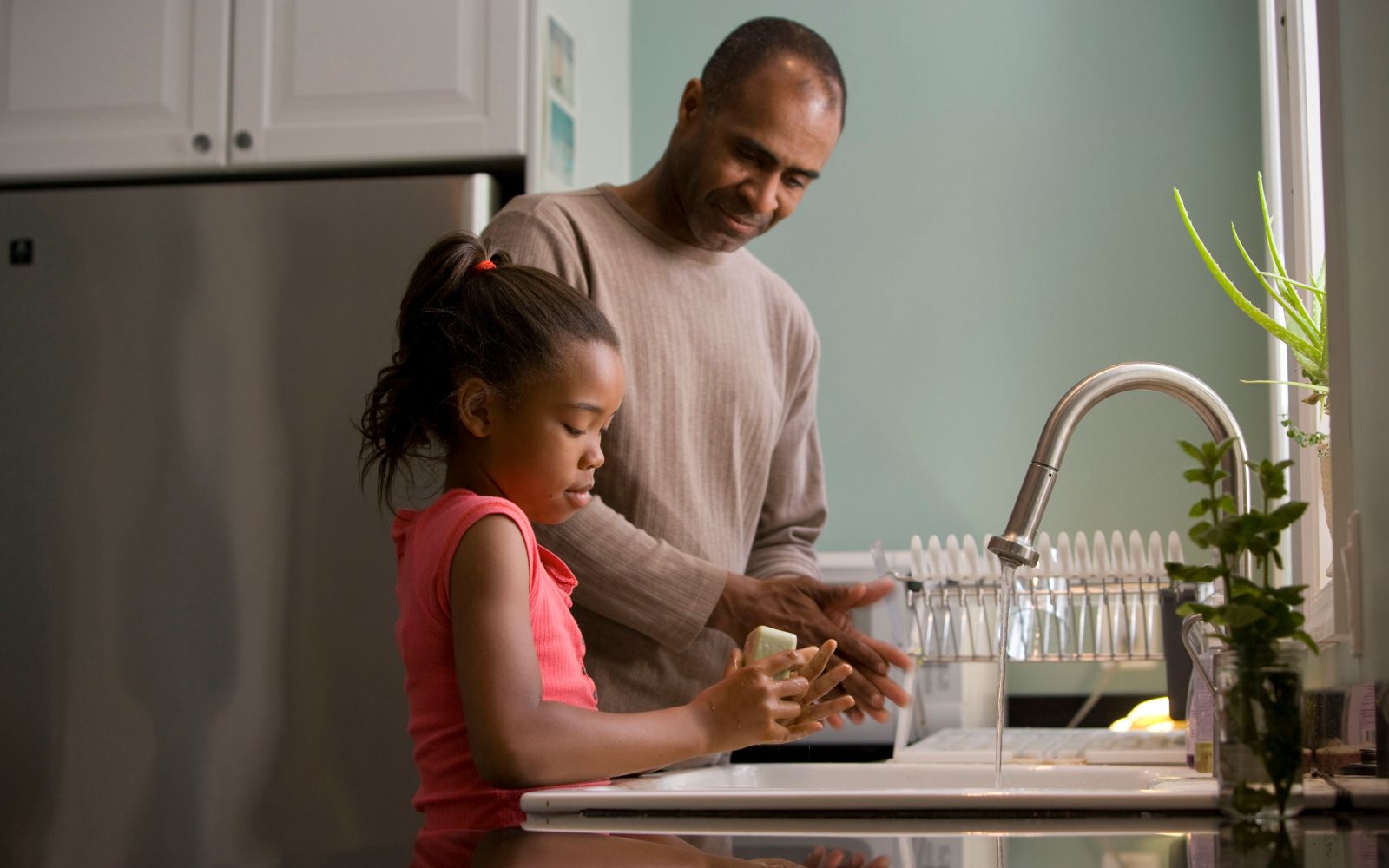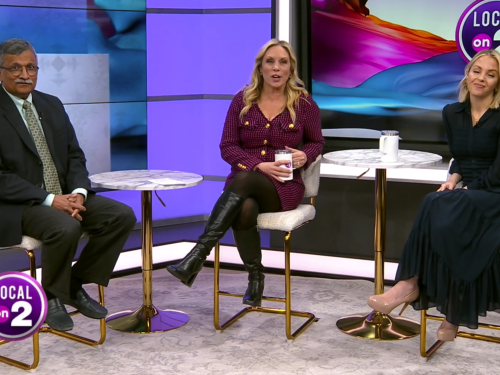Wash away germs.
One of the easiest ways to prevent the spread of germs and stay healthy is by washing your hands.

Proper hand washing is the most effective, easiest and least expensive way to prevent the spread of germs and stay healthy. Germs from unwashed hands can get into the body through your eyes, nose and mouth. Germs can also be transferred to other objects such as door knobs, eating utensils, toys and certain foods. When this happens, germs from one person can be easily transmitted to another person.
Keeping your hands clean helps prevent infections that cause diarrhea and the cold or flu. Studies have shown that handwashing can prevent 1 in 3 diarrhea-related sicknesses and 1 in 5 respiratory infections.
Washing your hands throughout the day is a good idea. In addition, you should always wash your hands:
- After using the bathroom
- Before, during, and after preparing food
- Before eating food
- Before and after caring for someone who is sick
- After changing diapers or cleaning up a child who has used the bathroom
- After blowing your nose, coughing, or sneezing
- After touching an animal, animal food, cages or animal waste
- After touching garbage
- After touching surfaces frequently touched by other people
- When they are visibly dirty
Proper hand washing is done in five steps:
- Wet your hands with clean running water.
- Apply soap and lather your hands by rubbing them together. This includes the backs of your hands, between your fingers and under your fingernails.
- Scrub your hands for at least 20 seconds.
- Thoroughly rinse your hands under clean running water.
- Dry your hands with a clean towel or air dryer.
Studies show that over-the-counter plain soap and antibacterial soap are equally effective in preventing the spread of certain infections. If soap and water are not immediately available, the use of an alcohol-based hand sanitizer that contains at least 60% alcohol can help reduce the number of germs on your hands. Hand sanitizers may not remove chemicals and heavy metals, like lead, from your hands. To remove these items you need to wash your hands with soap and water.
When using a hand sanitizer, put enough on your hands to cover all surfaces. Rub your hands together until they feel dry. For maximum effectiveness, do not rinse or wipe off the sanitizer before it is dry.
More information about handwashing, soaps and how to avoid germs in public areas can be found on the Centers for Disease Control and Prevention “Frequent Questions About Hand Hygiene” website.
Nashville General Hospital provides patient-centered care and makes high quality healthcare accessible to all. To learn more about our services and how to live healthier visit nashvillegeneral.org.
This information is not intended to be a substitute for professional medical advice. You should talk with your primary care physician or other qualified medical professionals regarding diagnosis and treatment of a health condition.
Sources:
- cdc.gov, “Handwashing in Communities: Clean Hands Save Lives”, Centers for Disease Control and Prevention, September 30, 2022
- fda.gov, “Antibacterial Soap? You Can Skip It, Use Plain Soap and Water”, U.S. Food & Drug Administration, May 16, 2019.



